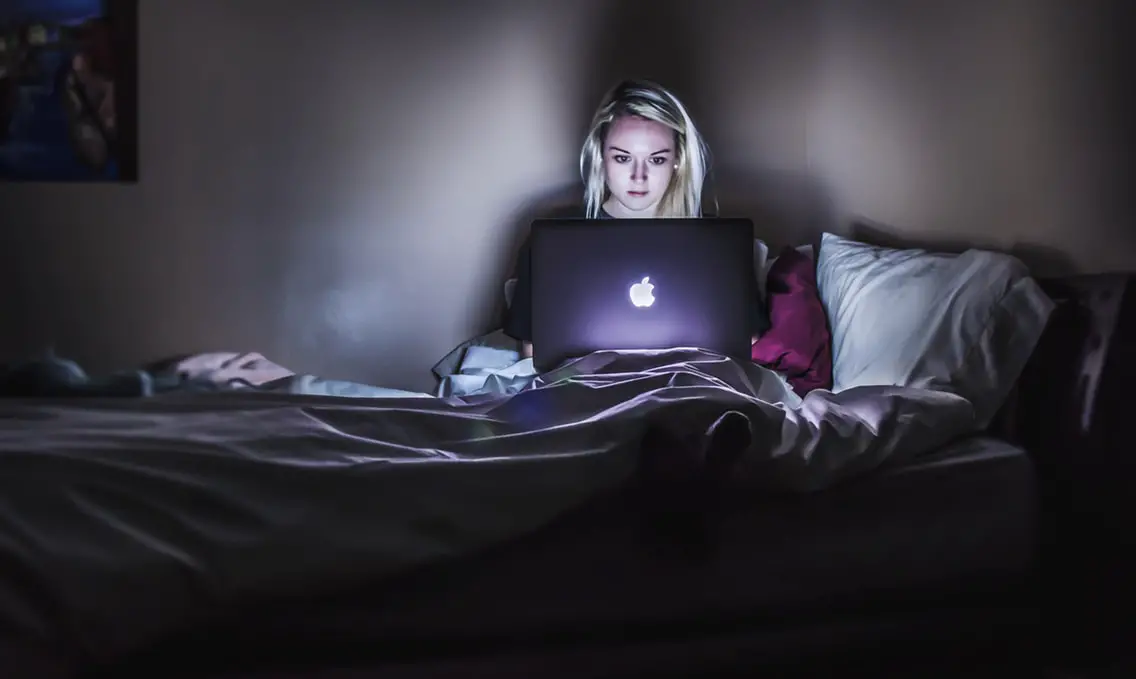Discussions of binge-watching versus the traditional model of television usually lean heavily in favor of the binge. I frequently hear from friends, family and classmates that, in the 21st century, they shouldn’t be expected to wait a whole week to find out the conclusion of a nail-biting cliffhanger. They were raised on instant gratification and they want it now.
Many committed people wait for shows that air weekly to conclude their seasons just so they can stream it all at once, even if it means avoiding spoilers on their favorite TV series for months. Arguments against Netflix binges typically focus on the negative health effects of sitting motionless for too long and avoiding social contact, which, admittedly, are the same effects that can stem from watching a full Thursday night comedy block on network TV. However, I have a message that committed TV obsessives might not want to hear: Binge-watching makes shows worse.
Noticing that approximately 80% of consumers indulge in, and even prefer, binge-watching, the University of Melbourne conducted a study to test this behavior’s impact on memory and comprehension. The university instructed three groups of consumers to watch a six episode mini-series in either one sitting, over the span of one week or over the course of six weeks.
Afterward, the researchers quizzed the participants after 24 hours, one week and 140 days. The group who watched one episode per week not only enjoyed the show more, but also held the strongest memory retention of plot details. Conversely, the participants who binged forgot the majority of the mini-series by the end of the study and reported enjoying the show “significantly less.” In short, watching a series slower coincides with more emotional impact and enjoyability.
The Downsides of Streaming
Nevertheless, numerous shows created for streaming platforms follow a storytelling format specifically designed for binge-watching; such programs don’t benefit from slower consumption because they’re meant to be 10- to 13-hourlong movies.
This ubiquitous phrase in the era of “prestige television” seems to have originated with AMC’s iconic show “Mad Men,” yet most Netflix exclusives and Amazon Originals take cues from cable (i.e. episode count and color grading). In Netflix’s attempts to qualify for prestige television, most of the streaming service’s original programming arrive pre-packaged, with an overlong series order and an emphasis on hyper-serialization.
Some critics agree that this is where Netflix’s Marvel shows faltered. “Jessica Jones” ignores the episodic nature of its source material for a focus on a disappointing season-long arc, while “Luke Cage” stumbled in the second half of its first season, since the writers were forced to expand beyond a contained story that fell short of a required episode count.
Even the middle episodes of “Daredevil” feel bloated and unnecessary. Taking audience investment into account, viewers are routinely dragged through hours for only 15 minutes of excitement, which are strategically doled out at the beginning and end of each episode.
Death of the Episode
When Season 2 of “Stranger Things” came out, I was so excited that I decided to watch it over the course of several weeks so I could savor each episode, but the experience forced me to return to binge-watching for Season 3. I discovered that most episodes of “Stranger Things” cannot stand on their own, and the majority of the season left me bored. Traditional television couldn’t have done that — the show would have been canceled.
Ordinarily, an episode isn’t an arbitrary way to break up hourlong chunks of a story, but rather a concise storytelling unit; this element prevents a show from transforming into a movie separated into segments. Like a short story, a TV episode holds the potential to practice the art of brevity.
While traditional TV is far from flawless considering its lack of creative freedom, shorter run times per episode and longer episode counts — not to mention forcing viewers to watch commercials — the pressures of the industry drive traditional TV to focus more on each individual episode.
Granted, “Breaking Bad” and “Mad Men” still loom large in our cultural consciousness due to their duration on TV, but they also combined serialized and slow-burn stories with episodic adventures that differed in theme and premise.
Moreover, a newer show like “The Good Place” can initially appear episodic, repeatedly overthrow its status quo and change up the “sit” part of its sitcom roots. Although streaming and the advent of binge-watching has been heralded as the end of traditional TV, it would be wrong to say that the networks have been sapped of all creativity.
Hulu to the Rescue
An interesting example of a partnership between traditional TV and streaming is Hulu. The platform features commercials but also allows users to find every season and every episode of certain shows on one platform. Hulu enables binging but, unlike Netflix or Amazon, it gives you a whole minute before it auto-plays the next episode. A high school teacher of mine once said that Netflix only gives you 16 seconds to decide if you want to do anything else with your day, but Hulu pushes you to think.
Hulu’s commitment to taking it slow also carries over to its originals as well; “The Handmaid’s Tale” appears on the streaming service week after week, despite being filmed in advance. As a result, it harbors the same watercooler conversation effect when each episode drops, similar to “Game of Thrones,” but without the expense of a premium channel.
Binge-watching may be satisfying in the moment, but it ultimately is not healthy for the medium. Luckily, there are ways in which the convenience of streaming can be married to the more meaningful experience of week-to-week viewing.
















